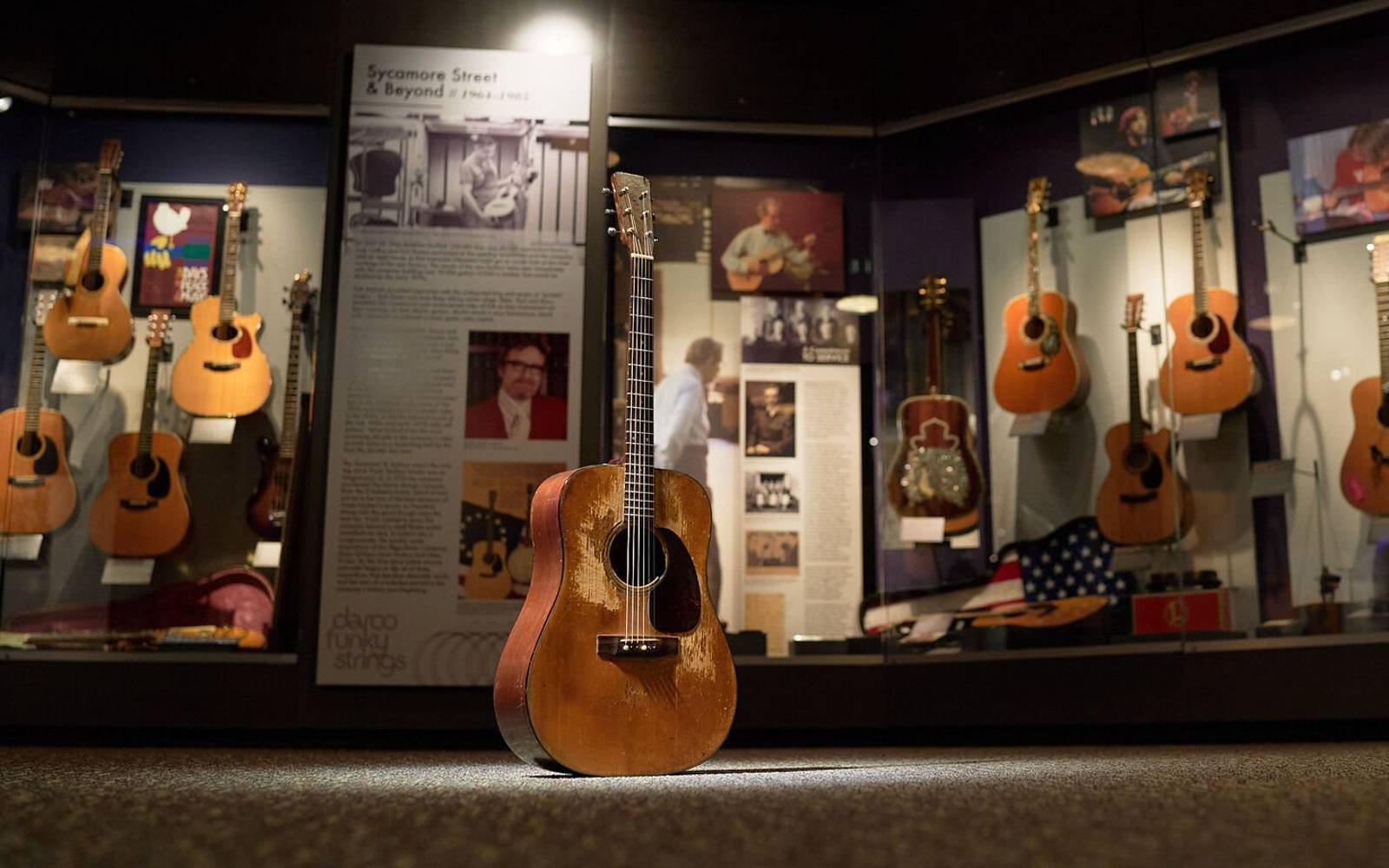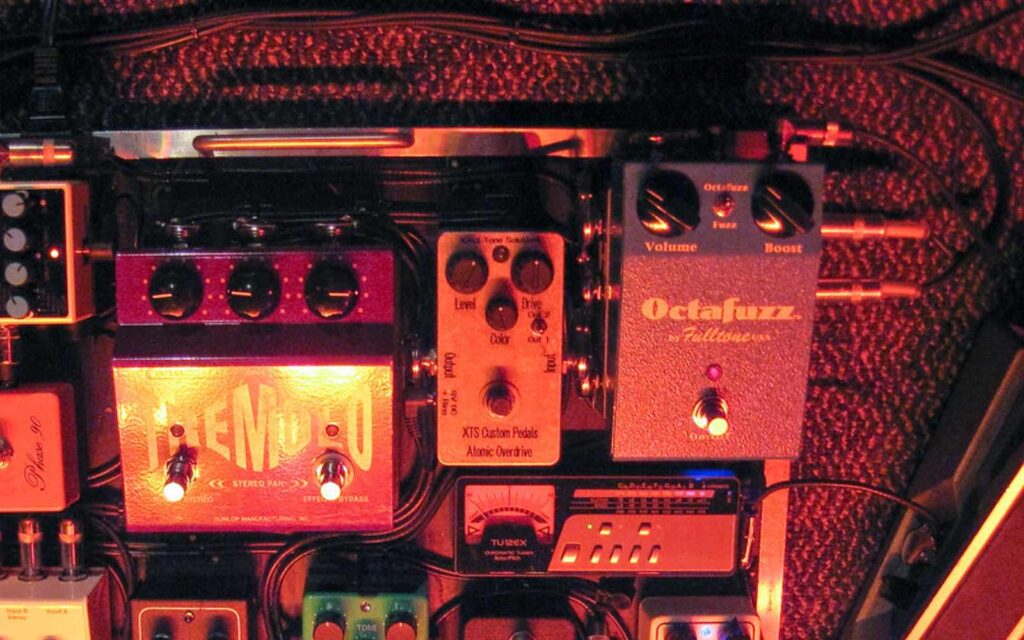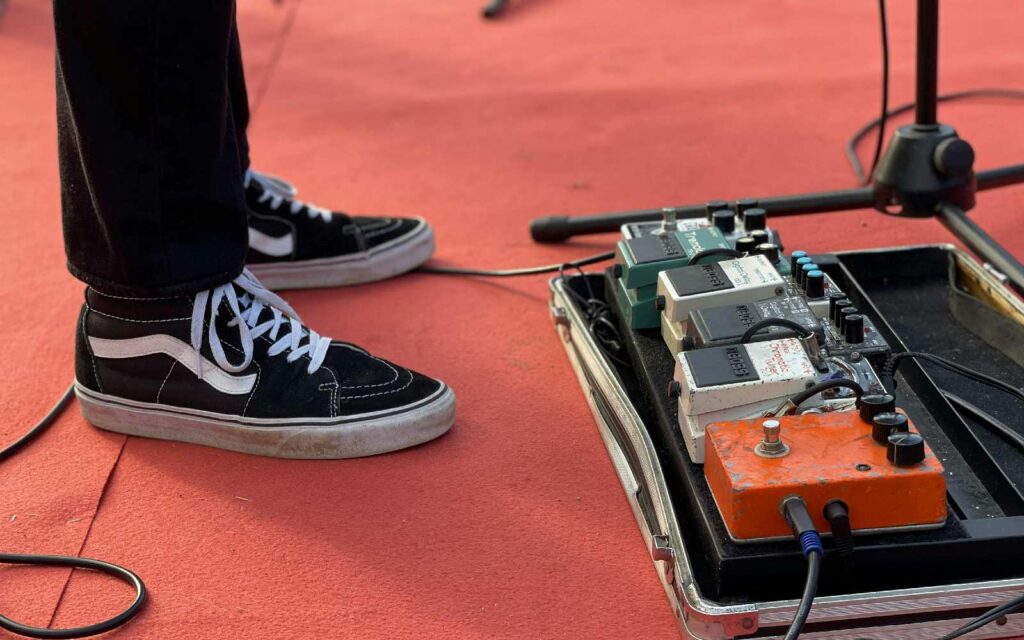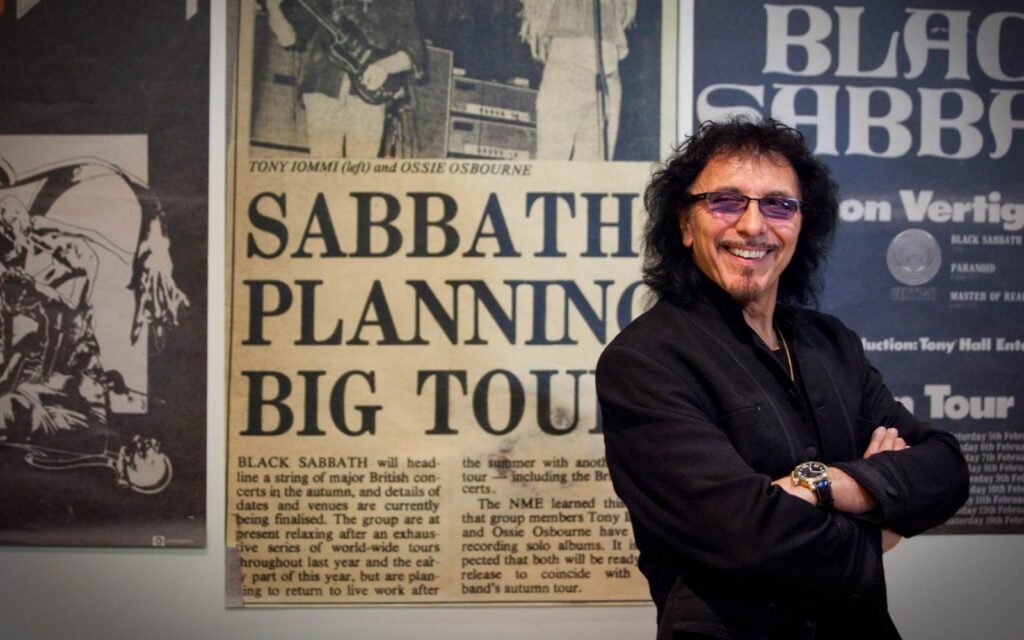In 1916, C.F. Martin & Company made a development that shaped the sound of American music as we know it: the Dreadnought.
Bigger, louder and more bottom-end heavy than the parlour style guitars that preceded it, the Dreadnought was not overly popular upon its original release, but all that changed soon enough. In the 1930s, the growing popularity of Bluegrass music called for a guitar that could be heard over Mandolins, Banjos and Fiddles and it wasn’t long before players like Lester Flatt and Earl Scruggs quickly discovered that the Dreadnought was the perfect tool for the job. Today, the Martin D-28 remains the platonic ideal of what an acoustic guitar looks and sounds like and has cemented Martin Guitars as the most important acoustic guitar manufacturer in history.
Read more features, columns and interviews here.
C.F. Martin
Christian Frederick Martin, a German immigrant and skilled cabinet maker, founded Martin in 1833. Martin’s early instruments were heavily influenced by the European guitar-making traditions of the time, but he soon developed his own unique style. His innovative use of X-bracing, a technique still employed today, allowed for greater stability and projection than the guitars that came before. By the mid-1800s, Martin Guitars had gained a reputation for excellence, attracting notable players like Johannes Brahms and other classical musicians.
The late 19th and early 20th centuries saw Martin Guitars experience unprecedented growth and innovation. The introduction of the iconic Dreadnought body shape in 1916 revolutionised the industry, albeit slowly, offering a louder, more powerful sound. This period also saw the development of the legendary Martin 000 and OM models, favoured by fingerstyle pioneers like John Fahey and Leo Kottke. News spread of the company’s commitment to quality and innovation and it soon earned them a loyal following among professional musicians.
During World War I, Martin Guitars shifted production to support the war effort, crafting wooden components for aircraft and other military equipment. Following the war, the company resumed guitar production, introducing the iconic D-28 model in 1931. This instrument would become a staple of bluegrass and country music, with countless legendary players like Flatt and Scruggs relying on its rich, balanced tone, louder projection and increased bass response. Today there is scarcely a known country artist worth their salt that doesn’t have a D-28 in their arsenal.
The 1960s folk revival saw another huge surge in demand for Martin Guitars, as artists like Bob Dylan, Joan Baez, and Joni Mitchell re-popularised the brand. The introduction of the D-35 model in 1965, with its distinctive three-piece back, further solidified Martin’s reputation. The D-35 has since become known as the ultimate singer-songwriter guitar, particularly popular with solo artists who, in the absence of other instrumentation, require an instrument with a big, balanced sound that projects well even when played fingerstyle.
As rock music gained steam in the late 60s, Martin Guitars adapted, collaborating with artists like Jimmy Page and Jeff Beck to create custom electrified instruments that could meet the demands of amplified music. As the 1970s brought in an era of enormous stadium shows, Martin kept up with the changing times and remained the acoustic guitar of choice for many of the biggest rock bands of the time. Throughout this period and to this very day, Martin has remained a family business, handed down through the generations with its legacy firmly intact, the faith of its customers quite rightly never wavering.
In recent decades, Martin Guitars has continued to innovate, incorporating cutting-edge materials and technologies without sacrificing their commitment to traditional craftsmanship. The introduction of the X Series, featuring environmentally friendly materials and sleek designs, has appealed to a brand new generation of players. Collaborations with artists like Ed Sheeran and John Mayer have resulted in unique, limited-edition models that blend vintage aesthetics with modern playability.
Chris Martin, the sixth-generation and current owner of the company, now frequently engages in speaking events about his family’s business, highlighting the brand’s enduring commitment to their legacy of quality handcrafted instruments. In addition to this, in 2018 Martin hired virtuoso internet personality Greg Koch as their brand ambassador, who now performs clinics across the United States demonstrating the brand’s products to great effect.

Martin Guitars’ storied history is a testament to the power of innovation, craftsmanship, and dedication. From their humble beginnings to their current status as a legacy brand and industry leader, the company has consistently pushed the boundaries of what an acoustic guitar can be. Remaining the benchmark for quality of sound and feel, Martins have become the acoustic guitar that all others are compared to, and will likely remain so for the foreseeable future.
Whilst Martin’s influence has reached global proportions, its most undying legacy will no doubt be the effect of the D-28 on American music. To say that the D-28 has ‘shaped’ the sound of America for the last eighty years is no overstatement. When one considers the effect that the instrument had on Bluegrass, Country and Folk music, its ripple effect on music as a whole is impossible to underestimate. With a list of iconic artists that includes Hank Williams, Johnny Cash, Elvis Presley, Bob Dylan, Doc Watson, Joni Mitchell, Neil Young, John Prine and many many more, it’s doubtful that there is another single guitar on which more timeless songs have been written. It is an object that irrefutably contains ‘quintessence’, there is nothing you could add to it or take away from it that would make it any more perfect than it is. It is the acoustic guitar.
Today, brilliant players like Billy Strings, Jason Isbell, Sturgill Simpson and Molly Tuttle prove that the Martin D-28 is as important to country music and bluegrass as it has always been. Beyond that, it is used, along with a myriad of other Martin guitars, by countless songwriters around the world across all genres to bring the songs in their heads to life. Whilst the world of electric guitars has always been, and seems to be continually divided between two very popular and very different legacy brands, when it comes to acoustic guitars, there is no doubt whatsoever about who remains royalty. The gold standard: C.F. Martin & Company.
For more info on their history, keep reading at Martin. For local Martin enquiries, visit ELFA.







